 What Is The First Step To Start The Adoption Process In Alabama?
What Is The First Step To Start The Adoption Process In Alabama?
Alabama courts have one overarching goal when it comes to adoption: facilitating the legal protection of the child. In fact, there is no common law adoption in Alabama. This plays a decent role in why judges have a great deal of autonomy in their own jurisdiction – and why hiring a lawyer who has experience with these individual local judges is truly key to having a successful adoption.
Ensuring compliance with state agencies like the Department of Human Resources (DHR) is crucial when it comes to adoption in Alabama. The DHR typically conducts a thorough home study to assess the suitability of prospective adoptive parents. This study examines various aspects, including the physical environment of the home, the character and background of the individuals seeking adoption, and any potential red flags such as criminal history or other disqualifying factors.
The primary objective of the home study is to ensure that you as a prospective adoptive parent can provide a safe and stable environment for the child. This process involves interviews, background checks, and inspections of the home to assess its suitability for raising a child. Additionally, prospective adoptive parents must demonstrate their willingness and ability to meet the emotional, physical, and financial needs of the child.
Ultimately, the DHR must give its approval for the adoption to proceed, and any concerns or objections raised during the home study process must be addressed satisfactorily. Adhering to the requirements set forth by the DHR and demonstrating their suitability as adoptive parents, you can dramatically increase your chances of successfully completing the adoption process in Alabama.
What Are The Legal Requirements For Adopting A Child In Alabama?
In Alabama, the legal requirements for adopting a child involve several steps and considerations:
Consent of Biological Parents
Generally, you need the consent of the child’s biological parents for adoption unless specific circumstances apply, such as:
- Abandonment
- Not being able to locate them
- Insanity
- Incapacity
- Termination of parental rights by the court.
If the child was born out of wedlock, you must comply with the Putative Father Registry Act, and notice must be given to the biological father to assert or waive his parental rights.
Legal Process
The adoption process involves filing a petition with the court, which initiates legal proceedings to finalize the adoption. A hearing is typically held to review the adoption petition, and if the court finds that all legal requirements have been met and it is in the best interests of the child, the adoption will be granted.
Finalization
Once the adoption is finalized, the adopted child becomes the legal child of the adoptive parents. This grants them full parental rights and responsibilities, including inheritance rights, medical decision-making, and the right to make educational and religious decisions for the child.
Post-Placement Supervision
After the adoption is finalized, post-placement supervision may be required by the DHR or the child-placing agency to ensure the well-being and adjustment of the adopted child in their new home.
It’s critically important for you as a prospective adoptive parent to familiarize yourself with the specific legal requirements and procedures for adoption in Alabama and to work closely with legal professionals experienced in adoption law to navigate the process successfully.
What Documents Are Required For Adoption In Alabama?
In Alabama, several documents are typically required for the adoption process:
- Proof Of Service: Documentation demonstrating that all parties involved in the adoption process have been properly served with notice of the proceedings.
- Certified Marriage Certificates: Marriage certificates of the adoptive parents may be required to establish their marital status and eligibility to adopt.
- Certified Birth Certificates: Birth certificates of the adopted child and any other relevant individuals, such as biological parents, may be necessary for the adoption process.
- Court Orders: Any court orders related to the adoption, such as those terminating parental rights or granting custody, should be obtained and submitted to the court.
- Proof Of Kinship: Documentation establishing the relationship between the prospective adoptive parent and the child, such as evidence of biological relationship or legal guardianship, may be required.
- Evidence Of Fitness: Documentation demonstrating the fitness and suitability of the prospective adoptive parent to provide a stable and nurturing environment for the child.
The evidence presented to the probate court must be clear and convincing, meaning it must establish the facts with a high degree of certainty to persuade the judge to grant the adoption.
Overall, while the adoption process in Alabama may involve several documents and legal requirements, it is generally straightforward, especially when all parties cooperate and consent to the adoption.

Milton Yarbrough, a seasoned family law attorney with a wealth of experience in adoption cases, provides insights into navigating the challenges of the adoption process in Alabama. He’s guided several clients through successful adoptions with invaluable legal counsel and support to prospective adoptive parents, ensuring compliance with state regulations and facilitating the best interests of the child.With a deep understanding of Alabama adoption laws and a commitment to personalized advocacy, Yarbrough will be sure to position you for success on your adoption journey with confidence and clarity.
Reach out to Yarbrough Law Firm today and schedule a consultation. They’ll assist you throughout the entire adoption process.
How Does One Complete The Home Study Process In Alabama?
In Alabama, the home study process for adoption typically involves the following steps:
Contact DHR
The process begins by contacting the DHR to initiate the home study process. DHR will assign a caseworker to conduct the investigation.
Caseworker Visit
The assigned caseworker will visit your home to conduct an inspection and interview. During this visit, the caseworker will assess various aspects of the home environment and your suitability for adoption.
Interview
The caseworker will interview you to gather information about your background, family dynamics, parenting skills, and motivation for adoption. They may ask questions about past criminal activity, substance abuse, and overall lifestyle.
Home Inspection
The caseworker will conduct a thorough inspection of the home to ensure it meets safety and suitability standards for a child. This includes checking for working utilities (such as power and water), adequate living space, cleanliness, and safety features like functioning doors and windows.
Assessment
Based on the information gathered during the visit and interview, the caseworker will assess whether you meet the criteria for adoption in Alabama. This assessment considers factors such as the stability of the home environment, the ability of the parents to provide for the child’s needs, and any potential risks or concerns.
Recommendation
Following the home study, the caseworker will provide a recommendation to the court. This recommendation plays a vital role in the court’s decision-making process regarding the adoption.
Follow-Up
In some cases, the caseworker may conduct follow-up visits or assessments to ensure ongoing compliance with adoption requirements and to address any concerns that may arise.
What Are The Costs Associated With Adopting A Child?
Adopting a child is a profound and life-changing decision that comes with various responsibilities and financial considerations. Understanding the costs associated with the adoption process is important if you are a prospective adoptive parent. While some expenses are minor, others can be significant and need to be planned for accordingly.
One of the primary costs of adoption is legal fees. Hiring an attorney is essential to navigate the complex landscape of adoption laws since they will guide you through the necessary legal procedure, ensuring that all regulations are followed.
In addition to attorney fees, there are court filing fees that must be paid to start the adoption process. These fees cover the administrative costs of processing adoption paperwork and can vary depending on the jurisdiction.
In some cases, a guardian ad litem may be appointed to represent the best interests of the child during the adoption process. If this occurs, you’d be responsible for paying the guardian ad litem’s fees as the prospective adoptive parent.
Home studies conducted by the Department of Human Resources or a licensed social worker generally do not have any cost associated with them if conducted by the state. However, if a private agency is used, there might be fees involved.
You’ll need to provide various certified copies of personal records, such as birth certificates and marriage licenses. The cost to produce these certified copies is usually minimal but still nonetheless necessary.
Perhaps most importantly, you must demonstrate your financial ability to support the child. This includes showing that they can cover the child’s basic needs, such as clothing, schooling, healthcare, and other day-to-day expenses. Adoption agencies and the court system require assurance that the adoptive parents are financially stable and capable of providing a nurturing environment for the child.
The adoption process itself may not be overly expensive, but the ongoing costs of raising a child are. Be prepared for the long-term financial commitment that comes with parenthood and ensure you have the resources to meet the child’s needs throughout their development.
How Is The Adoption Process Finalized?
The finalization of the adoption process typically involves a court hearing where all relevant evidence and testimony are reviewed by a judge.
At the finalization hearing, all parties involved in the adoption process, including the adoptive parents, the child (if they’re old enough), and any appointed guardian ad litem, appear before the judge. The purpose of the hearing is to review all submitted evidence and testimony to ensure that the adoption is in the best interests of the child.
During the hearing, the guardian ad litem, if there was one appointed, may testify about their evaluation of the adoption and whether it is in the child’s best interests. Both the adoptive parents and the child (if applicable) may also have an opportunity to testify or provide statements to the court.
After reviewing all the evidence and testimony, the judge will determine whether the adoption should be finalized. If there are no objections and the judge believes it is appropriate, they will issue a decree of adoption. This decree legally establishes the adoptive parents as the child’s legal parents and terminates the parental rights of any biological parents or legal guardians.
Of course, the specific procedures and format of the finalization hearing may vary depending on the jurisdiction and the preferences of the individual judge.
For more information on The Process Of Adopting A Child In Alabama, an initial consultation is your next best step. Get the information and legal answers you are seeking by calling (256) 321-5176 today.

Milton Yarbrough, a seasoned family law attorney with a wealth of experience in adoption cases, provides insights into navigating the challenges of the adoption process in Alabama. He’s guided several clients through successful adoptions with invaluable legal counsel and support to prospective adoptive parents, ensuring compliance with state regulations and facilitating the best interests of the child.With a deep understanding of Alabama adoption laws and a commitment to personalized advocacy, Yarbrough will be sure to position you for success on your adoption journey with confidence and clarity.
Reach out to Yarbrough Law Firm today and schedule a consultation. They’ll assist you throughout the entire adoption process.

 What Is The First Step To Start The Adoption Process In Alabama?
What Is The First Step To Start The Adoption Process In Alabama?